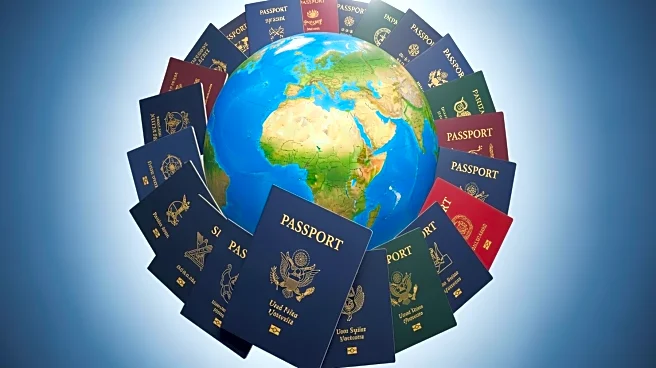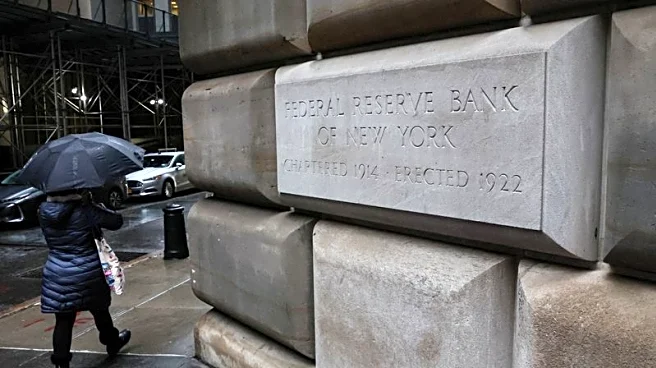What's Happening?
The latest Henley Passport Index has been released, showing the United States passport has fallen to 12th place globally, tied with Malaysia. This marks a significant drop from its previous position as the world's
most powerful passport in 2014. The index ranks passports based on the number of countries their holders can visit without a visa. Singapore currently holds the top spot, offering visa-free access to 193 countries, followed by South Korea and Japan. The decline in the U.S. passport's ranking is attributed to changes in visa policies, including the loss of visa-free access to Brazil and other countries, which have affected its global standing.
Why It's Important?
The decline in the U.S. passport's ranking has implications for American travelers, potentially affecting their ease of travel and international mobility. This shift reflects broader geopolitical changes and reciprocity in visa policies, which can influence diplomatic relations and international tourism. Countries with more powerful passports may see increased tourism and business travel, benefiting their economies. Conversely, the U.S. may face challenges in maintaining its global influence and attractiveness as a travel destination. The rankings highlight the importance of diplomatic relations and visa agreements in shaping global travel dynamics.
What's Next?
The U.S. may need to reassess its visa policies and diplomatic strategies to regain its position among the top-ranked passports. This could involve negotiating reciprocal visa agreements with other countries to enhance travel freedom for American citizens. Additionally, changes in global travel patterns and policies may continue to impact passport rankings, requiring ongoing adaptation by governments and travelers. Stakeholders in the travel industry, including airlines and tourism boards, may need to adjust their strategies to accommodate shifts in travel demand and preferences.
Beyond the Headlines
The decline in the U.S. passport's ranking may also reflect broader trends in international relations and global mobility. As countries increasingly use visa policies as tools of diplomacy, the principle of reciprocity becomes crucial in shaping travel freedom. This development underscores the interconnectedness of global politics and travel, highlighting the need for countries to balance security concerns with the benefits of open borders. The evolving passport rankings may also influence cultural exchanges and international collaboration, impacting sectors such as education, business, and tourism.











